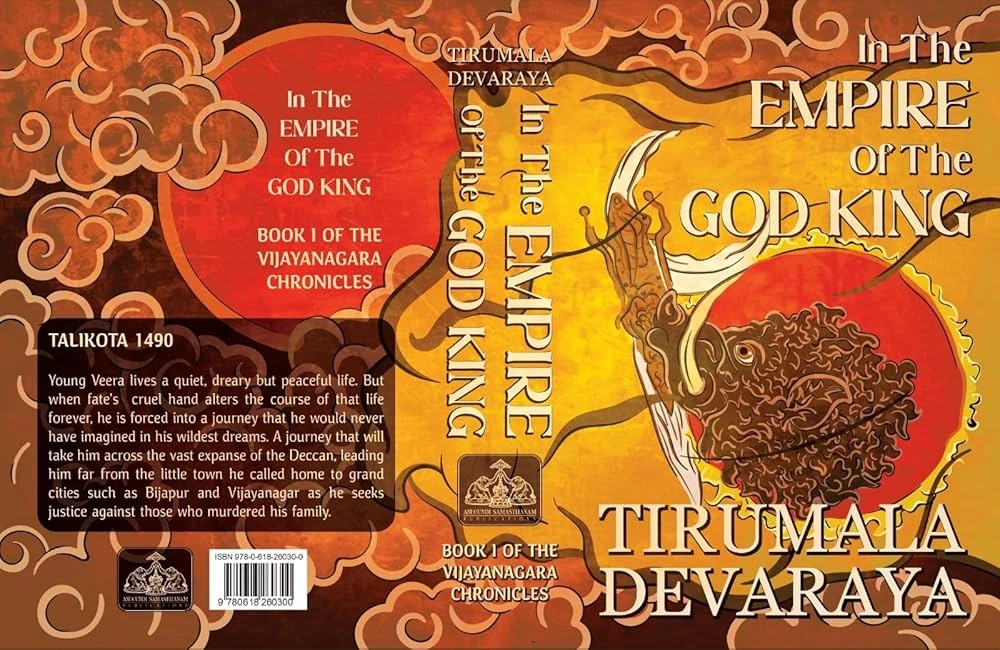(July 27, 2025) As the 20th descendant of the legendary king of Vijayanagara, Krishna Devaraya, Tirumala Devaraya carries the weight of an illustrious dynasty very gracefully on his shoulders. As one interacts with him, it becomes clear that the pride of his ancestors does not burden him but rather fuels his ambition.
At just 24, the young author is an emerging voice in historical fiction and his debut novel, In the Empire of the God King, set during the reign of Krishna Devaraya, seeks to reimagine and retell a legend that shaped much of southern India.
Having attended the University of Durham, the royal scion developed a keen academic understanding of his illustrious heritage. A passion for both the art of storytelling and the preservation of his roots enabled this truly Global Indian to find a way to bridge the past and present through his writing.
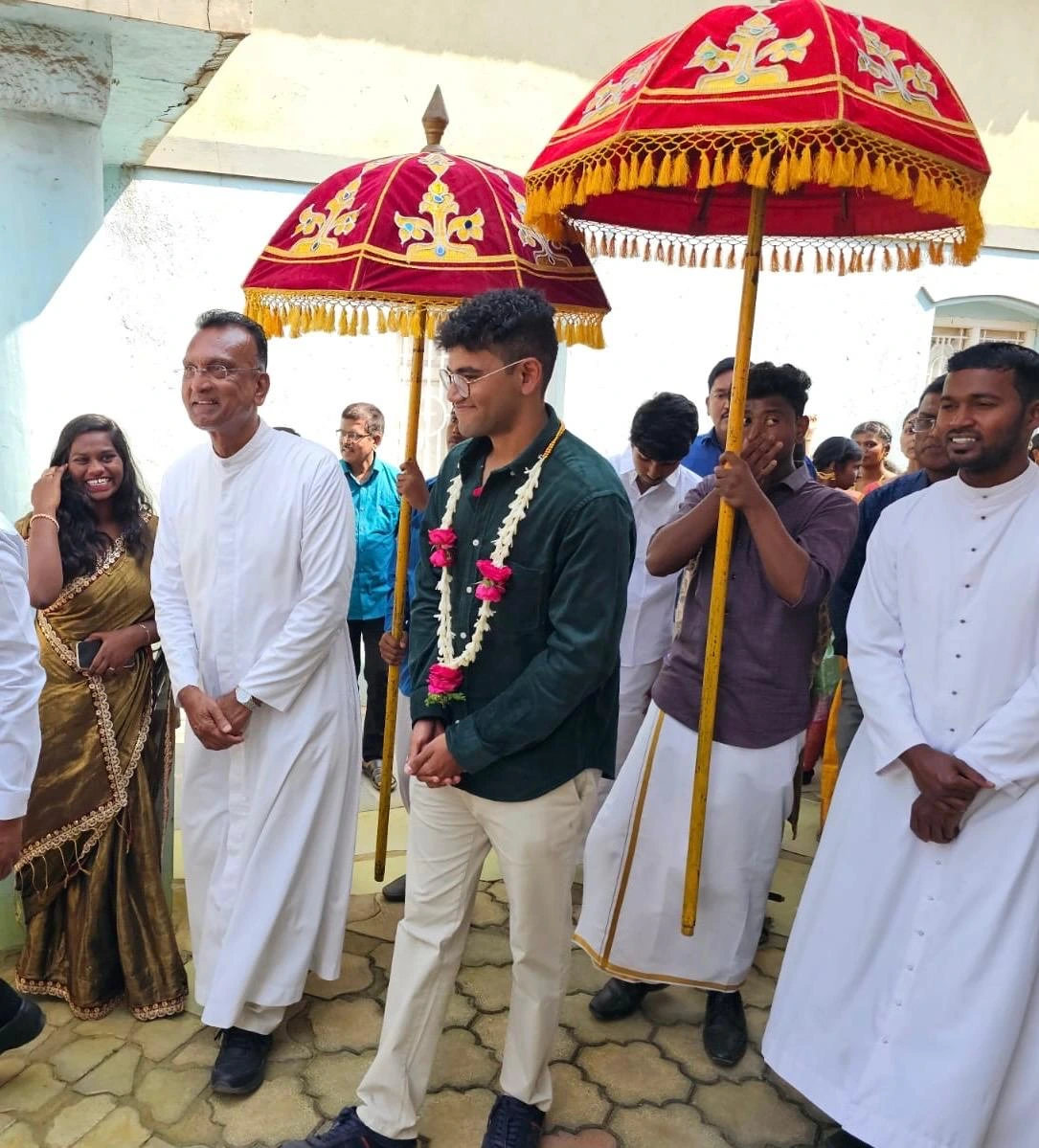
Tirumala Devaraya
A life between continents
“I was born in Hospet,” he shares, “a small city close to Hampi. But we moved to America when I was two.” The first few years of his life were spent on the outskirts of Washington, D.C., in Maryland and Virginia. He recalls with a smile, “I went to school for about a year there, but more than anything, I remember the libraries. In the U.S., you could borrow 30 books at a time. My mother and I used to max that out regularly,” he tells Global Indian.
That early habit of devouring stories led to a love of creating them. He explains, “At eight or nine, I was making my own picture books and comics, sometimes about Spiderman, sometimes just made-up worlds.”
The real world caught up soon enough. The family moved back to India when he was eight, following the death of his grandfather, Achuta Devaraja. He says, “My father felt that if we left again, all our family’s traditions would die out. There are centuries of practices in Anegundi that had to be kept alive.”
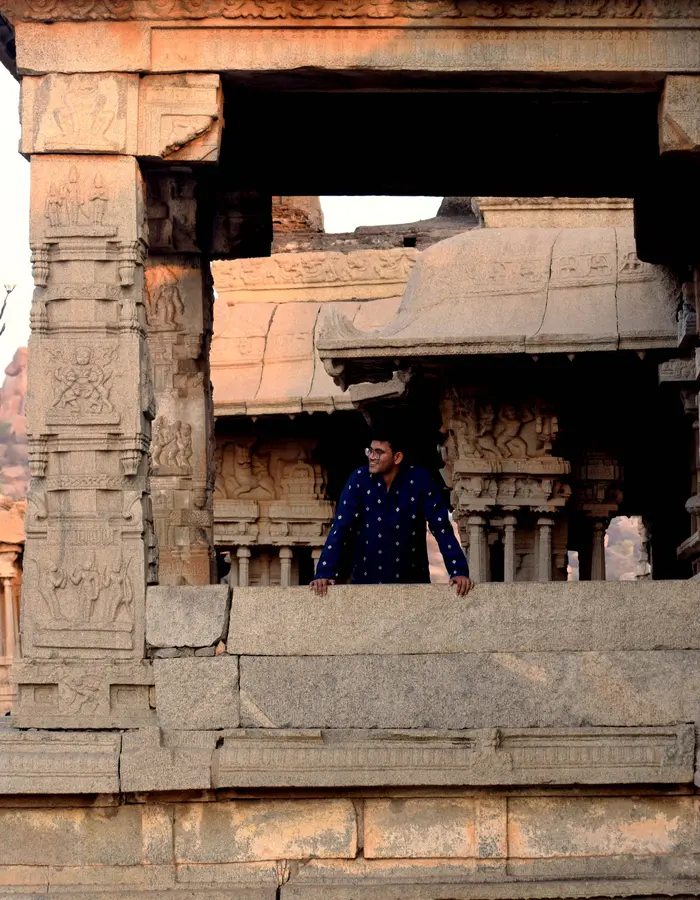
A reserved child, he spent most of his time with books, especially history. Visiting the famous Virupaksha temple in Hampi every Monday with his father became an unbroken ritual.
Then came formal education again, first in Hospet, then at Canadian International School in Bangalore, and later at Durham University in the UK, where he majored in history. That’s when it all came together: the academic study, his personal history, and a passion for writing.
Past reimagined
Tirumala’s novel is set between 1510 and 1515, during the rise of Krishna Devaraya, the most iconic emperor of Vijayanagara. But the protagonist is fictional. “That was a deliberate choice,” he says. “Having a fictional lead gives me creative freedom. It’s a coming-of-age story, a tale of loyalty, family, and vengeance set in a real, richly detailed world.”
While the characters may be invented, the backdrop is meticulously researched. His sources include Forgotten Empire by Robert Sewell and The Aravidu Dynasty, while he also consulted local scholars for interpretations of epigraphical evidence in Telugu and Kannada.
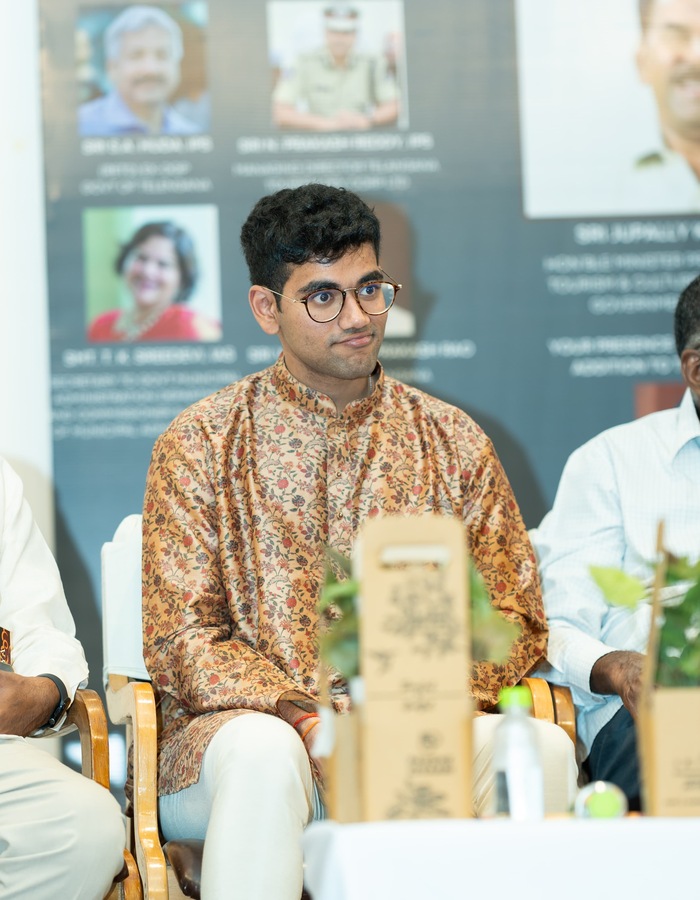
But perhaps the most evocative stories came not from books, but from his family about their ancestors that inspired him and set the stage for the novel.
Merging fact and fiction
While his academic background became the seed for his novel after graduation, Tirumala decided to travel across Europe, Sri Lanka, Australia, and an archaeological dig in Nepal before settling in to write. “Writing this book felt like a natural extension of my fascination with history,” he reflects. “Our past, especially that of Vijayanagara, is rich with political intrigue, powerful personalities, and dramatic events.”
The author points out that there is a common misconception that the Vijayanagara Empire ended with the Battle of Talikota. In reality, the empire lasted nearly a hundred years beyond that pivotal event, with Venkatapati Raya, the grandson of Krishnadevaraya, continuing to rule as a powerful emperor.
Despite this, his legacy is often overlooked, evidenced by the fact that there is a statue of him in Tirupati, yet he is merely labelled as the ‘King of Chandragiri.’ This erasure of the family’s contributions, and others like it, is what he is setting out to correct. He also emphasises that while Dasara at Mysore is famous for its grandeur today, it was originally a tradition of the Vijayanagara Empire, a fact that has largely been forgotten over time. For Tirumala, these oversights are a call to action to reclaim and honour the true legacy of his ancestors.
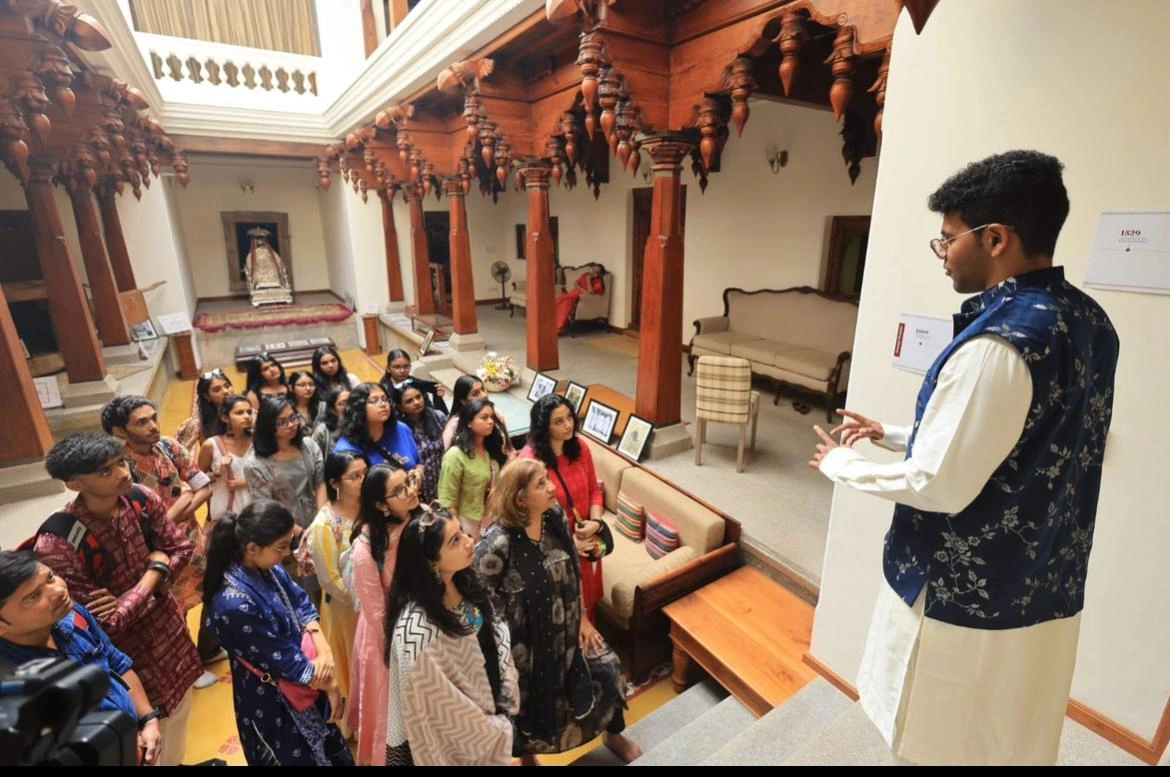
Ask him about the most famous figure from his lineage — Krishna Devaraya — and what he admires most about the legendary ruler, and Tirumala doesn’t hesitate. “I think he stands out for two things. One, he was probably the greatest conqueror, the most aggressive military leader of them all. Also, he was a great scholar poet himself. So, he’s both a scholar king and a conqueror. You don’t find many of those.”
From Durham to the world
Tirumala wrote much of the novel during his final year at Durham. “Balancing academic deadlines with novel writing was hard,” he admits. “Some scenes were especially challenging, emotionally intense or politically complex. I’d rewrite and ask for third and fourth opinions to make sure they felt authentic.”
After graduating in 2023, he briefly returned to India. During the G20 cultural summit held in Hampi, he was involved in showcasing the city’s ancient pomp and splendor. He reminisces, “I kept thinking, why can’t Hampi be India’s Angkor Wat? There’s so much potential.”
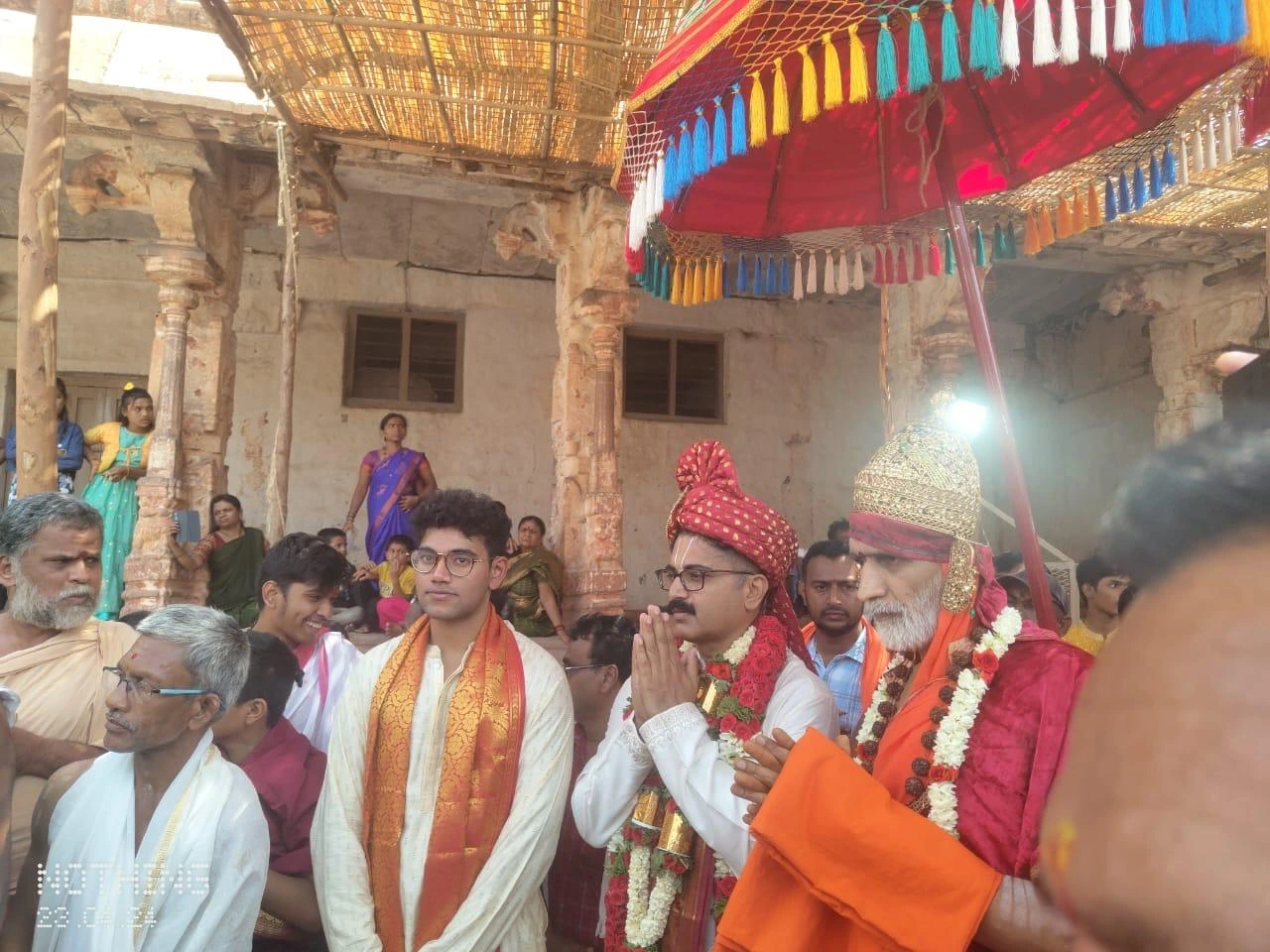
Pride, responsibility, and cultural stewardship
Heritage carries both pride and pressure. For the author, his own story brings a deep sense of pride and privilege in being part of the legacy of such a historic empire. But along with that comes the responsibility to live up to it, to honour it through action and integrity. He says, “My heritage has shaped me profoundly. It has given me a sense of direction and instilled values that guide the way I think, work, and live. It’s also given me a strong internal drive to contribute meaningfully and live up to the legacy I’ve inherited.”
Despite the royal ancestry, Tirumala is candid about the realities of modern times. “Our heyday was in the 1600s,” he laughs. “Since then, we’ve endured and survived wars, displacement, and the loss of property. My grandfather used to say, ‘Even if you don’t achieve anything great, don’t tarnish your family’s name.’ That stuck with me.” He is also very clued in with his family past and reels off names and incidents that occurred centuries ago, demonstrating an intimate connection to the past that informs both his writing and his understanding of his heritage.
Tirumala reveals facts that many have forgotten over time. That his ancestral kingdom was part of the Nizam of Hyderabad’s dominion and his family fled Anegundi during the Razakar movement in the 1940s. He shares, “The palace was burned. My great-grandfather took refuge in Karnataka, and my great-grandmother in Madhya Pradesh. When they returned, everything was in ruins.”
But even amid upheaval, they never let go of their cultural stewardship. “My grandfather was an advocate for preserving our traditions. My father continues that, and I see it as my responsibility too,” he reflects.
The next chapter
The author is on his way to pursue a master’s in political science at SOAS (School of Oriental and African Studies), London. But the fictional world he created isn’t going anywhere, as the current book is only the first of a trilogy. The next ones will see him exploring themes ranging from court intrigue and diplomacy to bravery and personal redemption.
Firmly grounded in his family’s story, Tirumala believes that the preservation of history goes beyond mere storytelling; it’s a vital part of cultural survival and continuity. “History is not just important; it’s essential,” he insists. “Without it, we risk losing our civilisational identity and the sense of continuity that binds us together.”
His focus right now is to assist his father in his sankalpam of restoring all the temples in Hampi as true living temples where pooja is performed daily, apart from penning the next part of his trilogy.
Does he see himself as a writer first or a historian? “I think of myself as a storyteller,” he says after a pause. “I want to bring the past alive, not just dates and wars, but the people, the drama, the emotion. Because in many ways, history is stranger and more compelling than fiction.”
- Follow Tirumala Devaraya on LinkedIn
Also Read: How entrepreneur-author Adhirath Sethi is creating impact through books and Agastya Foundation
Also Read: Viksit Bharat India@2047: Aditya Pittie’s blueprint for a $30 trillion economy

